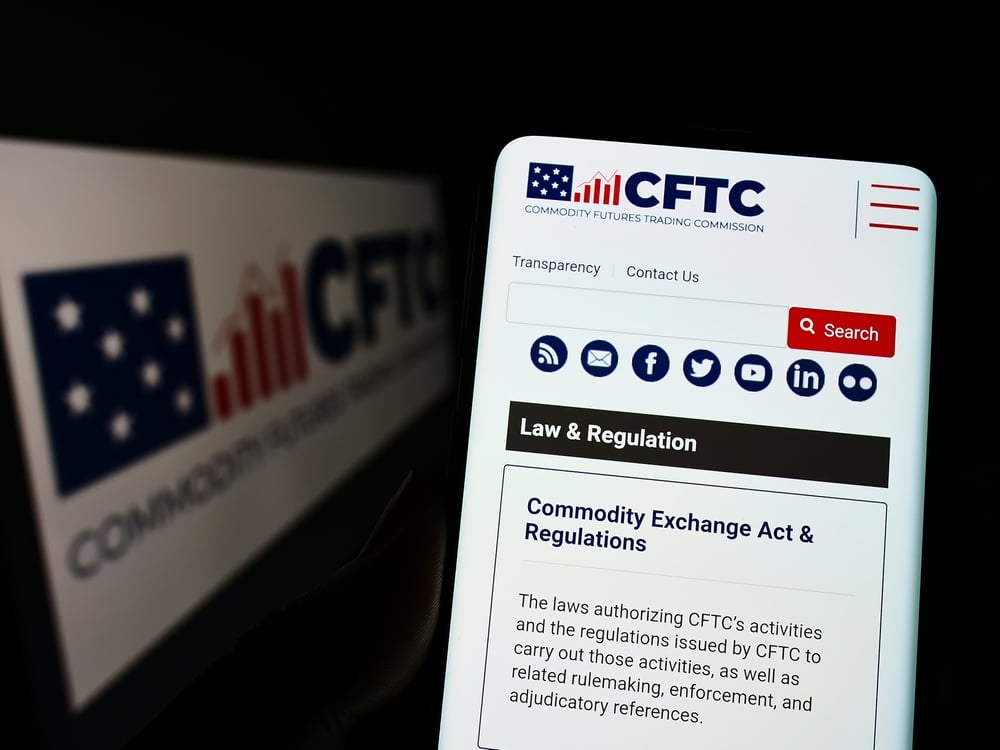The US Commodity Futures Trading Commission (CFTC) confirms charging Binance, alleging the crypto exchange violates US law through evasive practices.
The statement on Monday, March 27, by CFTC claims that Binance offers unregistered crypto products to US customers. Besides providing the derivatives products, the suit claims Binance executives direct the US customers to deploy virtual private networks (VPN) to evade the compliance controls.
CFTC Accuse Binance of Selling Unregistered Crypto Derivatives
The documents submitted to the court on Monday reveal that CFTC is suing Binance and chief executive Changpen Zhao (CZ) for knowingly offering unregistered crypto derivatives, contravening US federal law.
CFTC filed the suit before the Northern District of Illinois court and identified Binance as the primary defendant operating derivatives trading activities in the US. The filings allege that Binance offered various cryptocurrency trades identified as commodities, including Binance USD, Tether (USDT), Litecoin (LTC), and Bitcoin (BTC).
CFTC argues in the suit that Binance, through the CZ leadership, ordered their staff to conceal their work locations by utilizing VPNs. The charge sheet accuses Binance of contravening federal law for failing to register as a merchant for futures commissions, contract market, and executing off-exchange commodity options.
The file alleges Binance would execute swap roles and futures transactions. Besides violating the anti-money laundering provisions, it deployed an inferior anti-evasion, know-your-customer and supervision programs. The news of the CFTC filing the suit led to a 3% decline in the BNB token price.
Deliberate Use of Virtual Private Networks to Conceal Locations
CFTC suit illustrates that the global exchange utilizes its US affiliate firm Binance.US specifically established to conceal its operations. The US corporation argues that Binance utilizes multiple corporate entities to deliberately evade watchdog, obscure ownership and control. The filing indicates that Zhao would answer his policies.
A subsequent presser by the CFTC lead counsel Gretchen Lowe portrayed Binance’s actions as perpetrating willful evasion of federal law. Citing internal chats and emails sent to the staff, the suit alleges that Binance often instructed the U-based clients on how to evade restrictions. Often, the CZ-led exchange would direct customers to mask their true IP address. Besides awareness, the Binance platform consistently encouraged customers to utilize VPNs.
Binance would direct critical clients, particularly trading firsts, to establish shell entities in tax havens. Entities within the British Virgin Islands and Jersey would enable them to evade restrictions.
Deploying Evasive Tactics to Access US Customers
The filing stated that Binance deployed evasive tactics to avoid losing the US customers being they considered them to comprise a significant portion of the customer base. The filing cites monthly updates to Zhao that the US had by June 2020 constituted 17.8% of its market.
The filing cites internal chats among the Binance workforce as critical evidence. In particular, the filing accuses Samuel Lim while exercising his compliance officer role directing employees to remind customers to conceal their location.
CFTC alleges that Lim informed the staff to creatively reach the US users while on the surface concealing their existence. Additional allegations indicate Binance’s awareness of permitting sanctioned entities and persons to execute trading on the platform. The CFTC lead counsel submitted chat logs revealing Lim’s admission that terrorists often send money barely sufficient to acquire weapons.
The suit accuses the Binance human resource management of hiring an employee to assume reporting officer’s roles for money laundering.
The filing indicates that the individual duties involved writing unqualified audit reports to portray stringent compliance while it suffered inferior programs like the Paxos business partners.
The suit utilizes the reporting officer’s admission of writing falsified annual reports to the directors, whereas Binance lacked such individuals. The suit cites Lim’s confession to facilitate the management in signing off the falsified report.
CFTC Petitions Court for Comprehensive Enforcement Against Binance and CEO Zhao
CFTC’s motion seeks the court to halt further violations of Commodity Exchange Act provisions. Additionally, it seeks the court to impose civil monetary penalties alongside trading bans.
The suit mentions Binance chief executive – Zhao as a defendant citing he exercises direct and indirect ownership rights on the exchange activities and policies. Besides, the suit alleges that Zhao operates an estimated 300 accounts supporting platform trading.
The CFTC is unsurprising given that Binance strategy executive Patrick Hillman confessed in February that the exchange was under multi-agency investigations. The chief strategy officer indicated that the investigation would translate into fines payment for previous regulatory violations.
A critical revelation in the submissions before the Illinois court is evidence collected from Zhao’s phone. CFTC reveals accessing the Binance CEO phone that utilized the auto-deleting Signal application when communicating with fellow executives. The suit alleges collecting the text chains and group chats that affirm his input in orchestrating Binance’s wrongdoing.
Editorial credit: T. Schneider / Shutterstock.com

